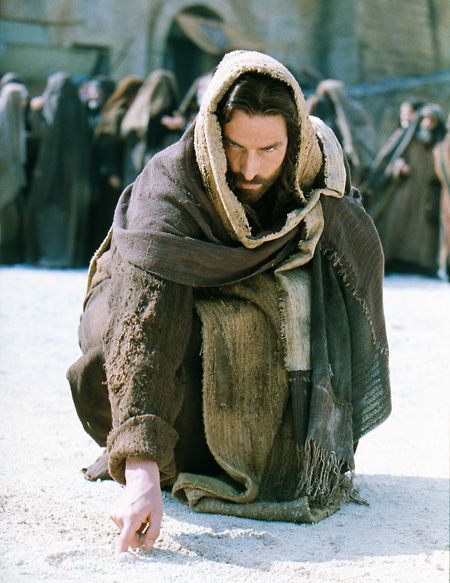
The Lord Rejects Saul
As many who have followed me for a bit, I have fallen into the Psalms, and I can’t get up! (As if I would want to.) The Psalms are a majestic collection of poetry, of heart felt human experiences that constantly challenge me in my own frail attempt to follow the true King. As many of the Psalms are written by David, my study on the Psalms has spurred me on to looking at the life of David, is the main contributor to this book, and to follow the victories and tragedies of the shepherd King of Israel.
Many times in the narrative, we will see the Lord Jesus, imperfectly, yet a reflection of His spirit in a man with weaknesses.
Let’s consider God’s Regret.
1 Samuel 15
10 The word of the LORD came to Samuel:
11 “I regret that I have made Saul king, for he has turned back from following me and has not performed my commandments.” And Samuel was angry, and he cried to the LORD all night.
This is the beginning of the end for King Saul, yet he seemingly doesn’t get it. Before we get to Saul’s great downfall, his rejection of God from being king of Israel, we have to consider what is going on in the mind of the Lord.
The passage speaks of the Lord regretting having made Saul the king of Israel. How can the ever present, all know God come to a point in realizing a mistake, for the term regret often brings with it the sense of a bad decision, a wrong act that has come back to bite you. I regret having made some decisions in the past, and although I believe God is making even those decisions tools to shape me into what He wants, there is no denying that I still have some regret.
I have made some decisions within my family that has ripped my heart out, but was necessary at the time. The particulars are not important here, other than the decision was the right one, given the information I had. But it still ripped my heart out!
The problem is that God is perfect, all knowing, and all wise! How could He make a decision that He would regret? God’s command to Saul, through the prophet Samuel was complete and utter destruction of Amalek, and all the livestock of Amalek.
1 Samuel 15:3 Now go and strike Amalek and devote to destruction all that they have. Do not spare them, but kill both man and woman, child and infant, ox and sheep, camel and donkey.’”
As we find out a bit later in the text, Saul spared a few animals (for a good reason though).
Consider God, in providing Saul to the nation of Israel as her first human king, and then seeing this failure come to fruition. God knew it was coming (depending on how you see foreknowledge), but the experience of seeing Saul fail ripped God’s heart out.
The term regret in this verse, and in verses 15:29 and 15:35 is the Hebrew word נָחַם nâcham, and it has many nuances. Some understand this term to denote pity, or compassion, even to suffer grief. Granted some of the meanings of the term include the idea of being sorry, and even repenting, but within this verse I am of the opinion that God is expressing His emotional reaction to the failure Saul committed. His heart was ripped out even though He knew it was coming.
We all fail, but as the leader of the nation, in relation to this specific command, Saul failed. And God regretted, or expressed His sorrow over the situation, and the future judgement that would have to fall on Saul.
What specifically broke God’s heart, brought this regret into the emotional life of God?
Saul Turned Back
The term “turned back” may be thought of as to apostatize, or to turn away, or even to turn against. Saul’s turning back seemed to be a decision he made at some time in his past, and was the root of the regret that God was experiencing. When this apostacy came to full bloom may be conjected for years, but Saul had begun stepping into rebellion when he got ahead of himself and performed a sacrifice without the prophet being present.
1 Samuel 13:13 ESV – And Samuel said to Saul, “You have done foolishly. You have not kept the command of the LORD your God, with which he commanded you. For then the LORD would have established your kingdom over Israel forever.
Saul’s intentions may have been good, but as a friend once told me, “The road to hell is paved with good intentions”. Saul’s battles with the Philistines definitely started off on the wrong foot!
This rebellion, that of sparing some animals of the Amalekites, may have a been a show of mercy, or dedication to the sacrificial system, or even an exhibition of religious devotion, but God called for obedience.
Saul has not Performed
Saul did not perform. He didn’t rise to the occasion. He came up short.
Where the previous phrase may be describing the premature sacrificial offerings before the battles with the Philistines, it appears this phrase may be describing the very act of sparing the King of Amalek, along with the “finest” of his animals. Saul was provided pretty clear instructions, but for some reason, went above and beyond the call of duty and spared the King of Amalek. The very man he was told to destroy, his arch enemy! What is going on in your head Saul? I get the justification of keeping the animals alive in order to sacrifice. Hear me out now – I am not justifying Saul’s actions in rebelling against God’s command, just speaking as one who also tries to do good without God!
But allowing the enemy to survive? I don’t understand.
Until I realize I can justify anything if I want it bad enough. That is where the will needs to be impacted by the love of God. Christianity is not a religion of emotion, or a system of logic, but a relationship with the Living God that impacts our will, to the point we are to say “not my will”.
Not my will, but Thine
Thanks again for coming to visit. I hope you found something of interest in this post and would appreciate a comment, to begin a discussion. If you know someone this blog may bless (or challenge), send them a link, so they may join us in our discussion.
Come join us at Considering the Bible

